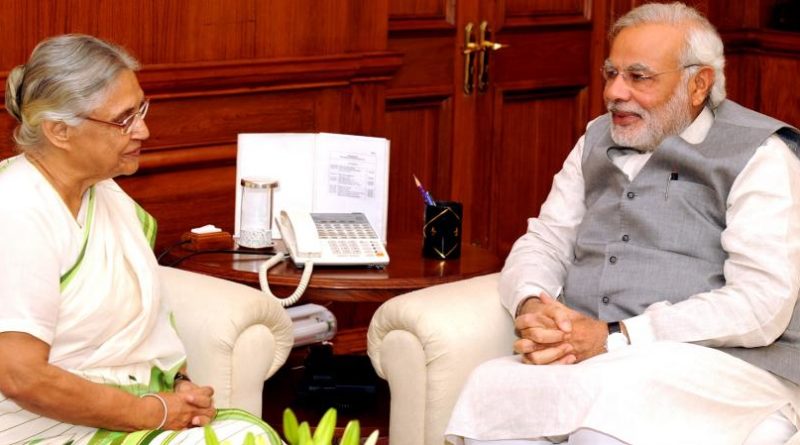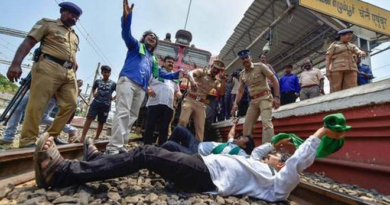ACCLAMED environmentalist Sunita Narain Recalls Sheila Dikshit’s Endeavour To Keep Delhi Pollution Free
Sheila
Dikshit, Delhi’s three-time chief minister who passed away on July 21, must be
remembered for her politics of consensus and negotiated settlement. This is
even more important in today’s age of highly polarised politics. It is also
important if we consider that the objective of a government is to ensure
delivery of development. And this is not possible without the ability to manage
the contested realities and to seek a collaborative solution. For me, this is
the real art of politics. Unfortunately, we seem to be losing this art as hate
and loud noise takes over the airwaves and our world. My encounter with
Sheilaji (as she was known) began with a fight. In the late 1990s we were in
the Supreme Court, arguing that Delhi’s public transport must switch over to
cleaner compressed natural gas (CNG) fuel to combat its then deadly air
pollution. This had become adversarial and contentious. The Union government
was dead against it; the diesel lobby was arguing that CNG was explosive and
untested. The Delhi government — then headed by Sheilaji — was dragging its
feet to make the transition. Queues at petrol pumps were getting longer and
longer as CNG was not being delivered; buses were being burnt to show how CNG
wouldn’t work. In the Supreme Court, the then Solicitor General of India Harish
Salve was hauling up the government for its deliberate inaction. The top court
was getting more and more incensed and called for contempt proceedings to start
against the Delhi Chief Minister. Then all this changed. Sheilaji walked into
the court personally. She didn’t stand on ceremony; she didn’t join the
acrimony. She just ensured that orders were to be followed. As they say, the
rest is history. We worked closely with her government through this period of
transition to CNG. She didn’t blink when the going was tough. She had the
ability to make her bureaucrats deliver, not as sovereigns, but by including
words and ideas from the “outside”. She joined worlds effortlessly and with
grace. This is another art in politics we are losing.In the decade of 2000
attention shifted to public transport to reduce vehicles on the road, and so
pollution. I distinctly remember that she came to one of our meetings where we
discussed the second-generation reforms after transition to CNG. She didn’t
hesitate to chide us. She disagreed that the city could move towards public
transport at the scale needed. She didn’t think this was the way ahead. But she
didn’t shut the door on us. We persisted and she listened.I believe it is we
who failed her. Not the other way around. When she supported the now-dismantled
Bus Rapid Transit System (BRT), it was because she gave chance to seemingly
impossible ideas. It is our collective inability to design a system for the
complexity of Delhi, which would negotiate with the different road users and
not antagonise needlessly, that made the system fail.
But she again did not give up on the ideas. She dismantled the notorious Blue Line bus service, even though it was owned by many of her compatriots. She supported the purchase of a new generation of low-floor and air-conditioned buses — all new and all untested. She understood the need for massive investment in public transport — metro, bus and cycle — to reinvent mobility. Again, it was her governance abilities combined with persuasive powers, without angst and without finger-pointing that brought these changes.I am writing this not to call out to the current leaders of my city or country. But to reminisce so that we can, perhaps for one moment, think of how politics of consensus will deliver. I know she lost the popular vote in 2013; I know that air pollution and many other problems of this ungovernable city with multiplicity of authorities, grew in her tenure. But the fact is that she never stopped trying. She never shunned responsibility. She mastered that elusive art of pushing for change without fuss.One of the last times I met her was when she called to ask what she could do about the growing pollution in the city. She had lost the election a few years ago. But she was concerned, even agitated. She wanted to know what more governments could do; what advice could she give.I told her frankly that she should not try. She would be attacked for not doing enough in her tenure. The blame-game machinery would go on over-drive. But she wrote to governments with her advice. I know, because she called to tell me, with some bemusement that she did not get any responses. What could I say? The courtesy of a response was old-fashioned; her fashion. It would be really unfortunate if we let the Sheila Dikshit way of politics go out of fashion.(pic courtesy Wikimedia Commons)




